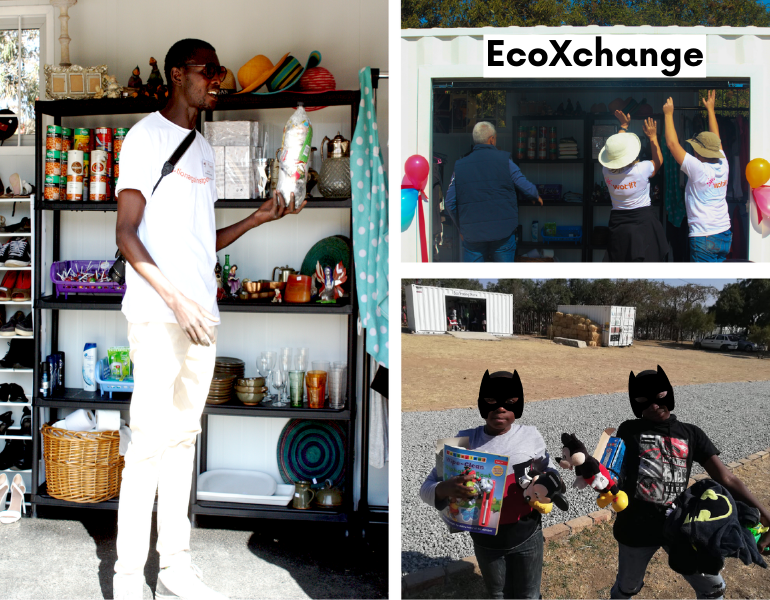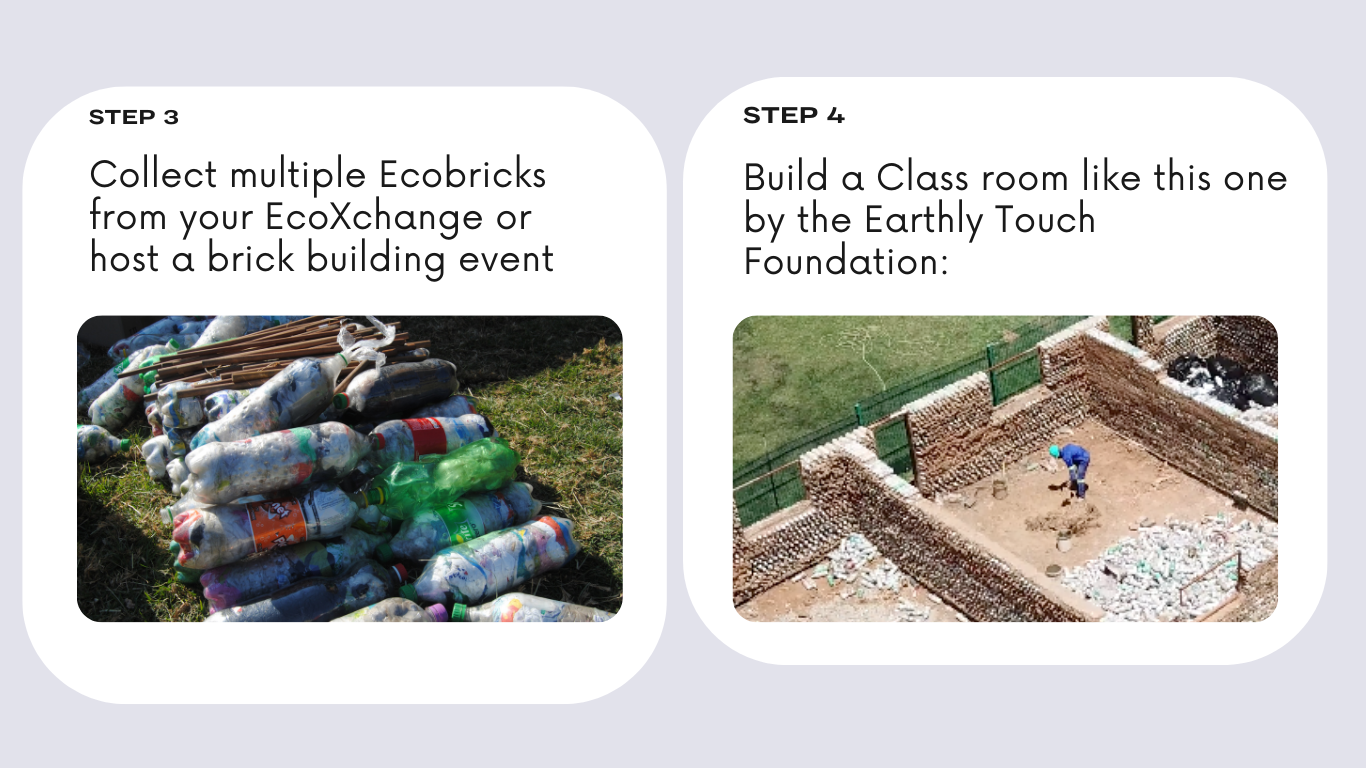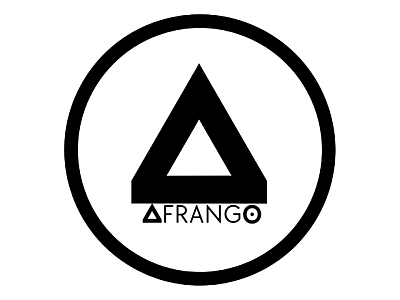Reimagining Waste: An exchange for Good(s) leading to new building material used for a school in Diepsloot
Posted by Breggie Hoffman on 19 February 2025, 11:05 SAST


The EcoXchange programme is setting a new benchmark for the term "innovation". The team at the WOT-IF? Trust has come up with a methodology that supports aspiring entrepreneurs, protects the dignity of participants and addresses the plastic polution problem in the Diepsloot area. The EcoBricks used as currency at the EcoXchange has grown in such popularity, it is now providing the building material (either directly or indirectly) for a school built by another FGO in the area.
In a community like Diepsloot, the WOT-IF? team often find that the people they work with are struggling to meet their basic needs. Part of their mandate is to help aspiring entrepreneurs develop their businesses so that they can secure an income for themselves and eventually create jobs in their community. But how can people build thriving businesses when theu are hungry?
Before Covid the WOT-IF? Trust was able to provide soup and sandwiches to programme participants on a daily basis. However, this only provided a temporary solution and is not empowering in any way.
To address the issue of supporting the basic needs of their enterprise development participants, they came up with the EcoXchange programme. This programme however had a much larger effect than initially anticipated.
How it works
The EcoXchange store enables people to buy what they need using a community currency, which they earn through “green” activities. They can bring in EcoBricks they’ve made or seedlings they’ve grown to earn this currency called EcoBucks. Young children can even exchange wet waste that will be used for composting in the WOT-IF? vegetable garden.
The societal effect
Participants “do something to get something”, rather than receiving handouts. This methodology speaks to dignity through earning for those who buy goods at the EcoXchange with their EcoBucks. It also speaks to dignity and respect for those who donate goods to the EcoXchange. Using this model a culture of social responsibility, self-reliance and eco-awareness is created.

The environmental effect
The EcoXchange (when well-stocked) includes non-perishable food items, soap, roll-on, stationary and pre-loved househould items, clothing and toys. The WOT-IF? Trust receive these goods as donations. It is goods that would have ended up in a landfill but now find new homes where they are valued because they have been earned and bought. I
The EcoBricks that are exchanged are made by filling empty 2L water bottles with plastic litter. These bricks can then be used to build houses, class rooms and furniture. Diepsloot has a seriouse plastic waste problem. Turning this waste into an asset is therefore transformational.


(Above image "STEP 4" is a screenshot from a video with and article by the DG Murray Trust on building classroom with single use plastics with the help of EcoBricks) (The "Step 3" image and "Step 2 " image are from an event hosted by the Wot-If? Trust).
Watch the video by Ground Up News on the School built in Diepsloot with EcoBricks :
